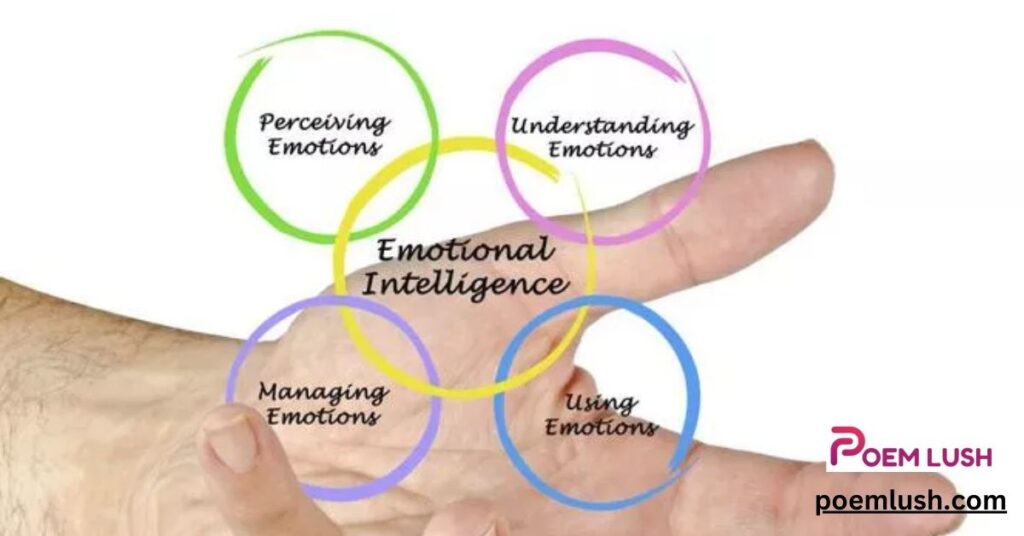Words can touch hearts and heal wounds. Short poems, with their brevity and emotional depth, offer a unique way to comfort, uplift, and inspire. Short Poems to Make Someone Feel BetterWhether you’re seeking solace during tough times or wishing to help someone else, these concise verses deliver the healing power of words in their purest form. Short Poems to Make Someone Feel Better
This article explores how short poems can help make someone feel better, their therapeutic effects, and practical ways to use poetry for emotional well-being. Along the way, you’ll find original verses, tips for creating your own poetry, and insights into how poetry supports self-care and resilience. Short Poems to Make Someone Feel Better
Why Short Poems Are Effective

Immediate Impact
Short poems stand out because they deliver powerful messages in just a few words. Unlike longer literary pieces, they’re digestible and can offer instant relief. Short Poems to Make Someone Feel Better
A well-crafted short poem like:
“The darkest skies reveal the brightest stars”
can resonate deeply and shift a person’s mindset in mere moments.
Connection Through Simplicity
Short poems strip away complexity, leaving behind raw, relatable emotion. This simplicity makes them accessible to anyone, regardless of their literary background.
Consider this simple yet profound example:
“The tears you shed, the pain you bear,
Are threads of love, woven with care.”
Such verses remind us of shared experiences, fostering connection and empathy.
Portability and Versatility
Short poems are easy to carry—mentally and physically. A line or two can be written on sticky notes, texted to a friend, or even memorized for personal reassurance.
The Healing Power of Words
How Poetry Aids Emotional Well-Being
The therapeutic effects of poetry stem from its ability to articulate emotions that might otherwise be hard to express. It validates feelings and offers hope through metaphor and imagery.
Psychological studies highlight how writing and reading poetry can:
- Reduce stress levels
- Improve emotional resilience
- Enhance self-expression and emotional balance
Poetry as a Form of Therapy
Poetry therapy is an established practice in counseling and mental health care. It helps individuals process trauma, cope with grief, and build inner strength. Short Poems to Make Someone Feel Better
Example Poem for Healing:
“Though heavy the burden, though steep the climb,
Each step is a triumph, each moment, sublime.
The heart will mend, the soul will grow,
Through valleys of pain, the rivers flow.”
Famous Short Poems for Comfort and Healing
Timeless Verses for Resilience
Classic poets like Emily Dickinson and Robert Frost have crafted verses that continue to inspire and comfort readers.
- Emily Dickinson:
“Hope is the thing with feathers
That perches in the soul…”
This poem serves as a gentle reminder of hope’s enduring presence, even in challenging times.
- Robert Frost:
“The best way out is always through.”
These words encourage perseverance and resilience.
Modern Poems That Uplift
Contemporary poets like Maya Angelou and Rupi Kaur have written verses that speak to today’s struggles and triumphs.
Maya Angelou:
“Still I rise.”
This iconic phrase encapsulates strength in the face of adversity.
Rupi Kaur:
“How you love yourself is how you teach others to love you.”
A gentle nudge toward self-care and self-worth.
Writing Your Own Short Poems for Comfort

Benefits of Writing Poetry
Creating your own poetry can be just as healing as reading it. Writing provides a space to explore emotions, gain clarity, and foster personal growth.
Step-by-Step Guide
- Choose a Theme: Focus on what you or your loved one needs—hope, love, or strength.
- Use Metaphors and Imagery: These tools make abstract emotions tangible.
- Keep It Concise: Aim for brevity while retaining depth.
- Edit Thoughtfully: Refine your words to enhance their emotional impact.
Example:
“Through the cracks, the light will seep,
A quiet strength, a resolve deep.
Each scar a tale, a story untold,
Of courage forged, of hearts so bold.”
Poems for Specific Situations
Comforting Someone After a Loss
Grief is deeply personal, but a well-crafted poem can offer solace.
Example Poem:
“Gone but not forgotten, your light remains,
In memories cherished, in love’s soft refrain.
Through every tear, your essence flows,
A guiding star, where the heart goes.”
Encouraging a Friend Facing Challenges
Whether it’s a work struggle or a personal setback, a motivational poem can be a source of encouragement.
Example Poem:
“The mountain may loom, the path unclear,
But step by step, you’ll persevere.
In every challenge, a lesson you’ll find,
Strength in the heart, and peace in the mind.”
Brightening Someone’s Day
Sometimes, all it takes is a lighthearted poem to lift someone’s spirits.
Example Poem:
“When life feels heavy, and clouds turn gray,
Remember the sun is a laugh away.
Find joy in the small, the simple, the sweet,
In every hello, in each stranger you meet.”
Sharing Short Poems
Creative Ways to Share
- Handwritten Notes: Add a personal touch by writing a poem on a card or bookmark.
- Social Media: Post uplifting verses to spread positivity.
- Text Messages: Share a quick poem to brighten someone’s day.
Table: Poetry Sharing Tips
| Method | Why It Works |
| Handwritten Notes | Personal and heartfelt |
| Social Media Posts | Reaches many people at once |
| Gifts with Poems | Combines material and emotional value |
Exploring Poetry for Self-Care
Poetry Journaling
Writing poetry in a journal helps channel emotions constructively. It’s a form of self-expression that fosters emotional balance.
Daily Poetry Affirmations
Incorporate positive affirmations into your routine by writing or reciting them as poems.
Example Affirmation Poem:
“I am enough, I am whole,
With love and light, I fill my soul.
Each day is new, each moment, bright,
I choose my path, I claim my light.”
The Science Behind Poetry and Emotional Well-Being

Research Insights
- Studies show that poetry activates areas of the brain associated with introspection and emotional processing.
- Reading poetry reduces cortisol levels, aiding in stress relief.
Case Study: Poetry Therapy
A counseling program for veterans used poetry to help participants process trauma. Many reported feeling more at peace after writing about their experiences.
The Role of Culture in Short Poems for Comfort
Poetry is deeply embedded in cultural traditions across the world. From Japanese haiku to African praise songs, cultures have used brief poems to offer solace, inspire resilience, and celebrate life. Exploring cultural expressions reveals the universality of the healing power of poetry. Short Poems to Make Someone Feel Better
Japanese Haiku: Healing Through Nature
Haiku is a minimalist Japanese poetic form that captures fleeting moments in nature. Its structure—three lines with syllable counts of 5-7-5—creates a meditative rhythm, grounding readers in the present.
Example Haiku for Resilience:
“Soft rains kiss the earth,
Storms yield blooms, life starts anew,
Strength in each sunrise.”
This verse reminds us that nature’s cycles mirror our own paths of growth and healing.
African Praise Poetry: Strength in Words
Praise poetry is a rich tradition in African cultures. These poems often celebrate the strength and resilience of individuals or communities. They remind listeners of their inherent power and connection to their roots.
Example Praise Poem:
“Child of the sun, rise with pride,
Bearer of storms, walk undenied.
In your veins flows strength untold,
You are the fire, bright and bold.”
Western Sonnets: Structured Solace
Sonnets, particularly those of Shakespeare and Elizabeth Barrett Browning, blend strict forms with emotional depth. Short Poems to Make Someone Feel BetterTheir structure creates a sense of balance, mirroring the harmony they seek to inspire.
Example Sonnet for Healing:
“Through shadowed paths where sorrow hides,
The heart finds light as hope abides.
A whispered word, a gentle care,
Brings peace to hearts, so unaware.”
Short Poems and Emotional Intelligence

Developing Empathy Through Poetry
Short poems often articulate emotions succinctly, helping readers and writers build emotional intelligence. Empathy grows when we see our experiences reflected in the words of others.
Poem to Foster Empathy:
“In your eyes, the tears I know,
A shared burden, a silent glow.
Through your pain, I see my own,
Together, we’re never alone.”
Emotional Regulation
Reading and writing poetry provides tools for emotional regulation. Identifying and naming emotions through metaphor can defuse their intensity.
Tip: Next time you feel overwhelmed, try writing a four-line poem describing your emotions using imagery. Short Poems to Make Someone Feel Better
How Poetry Connects Generations
Short poems bridge generational gaps by sharing universal truths in a format everyone can appreciate. Short Poems to Make Someone Feel BetterOlder generations may pass down wisdom through verse, while younger people reinterpret these messages for modern times.
Wisdom in Short Poems
Elders often share values and life lessons through concise, memorable phrases.
Example:
“Kindness is a seed you sow,
In time, the love will surely grow.”
Youthful Reinterpretations
Contemporary poets adapt traditional forms to address current challenges, like mental health or social justice. This reinvention keeps poetry relevant and impactful.
Using Poetry to Build Resilience
The Science of Resilience
Resilience involves the ability to bounce back from adversity, and poetry helps by reframing challenges as opportunities for growth. Studies have shown that creative writing fosters psychological flexibility, a key component of resilience.
Writing Prompts for Resilience
Use these prompts to create your own resilience-building poems:
Write about a time when you overcame a challenge.
Compare your strength to an element of nature, like a tree or river.
Describe the support you’ve received from loved ones.
Example Poem:
“Like the oak that bends, yet does not break,
I stand my ground, for strength’s own sake.
Winds may howl, the earth may quake,
But in my core, no fear shall stake.”
Short Poems for Specific Emotional Needs
Poems for Anxiety Relief
Anxiety often thrives on spiraling thoughts. Short poems with repetitive structures or soothing imagery can interrupt these patterns.
Example Poem:
“Breathe in, breathe out, let stillness stay,
The storm will pass, the clouds give way.
Each moment here, a calm, a peace,
A quiet heart, a sweet release.”
Poems for Encouragement
Sometimes, all it takes is a few kind words to remind someone of their strength.
Example Poem:
“The fire inside you burns so bright,
A beacon in the darkest night.
No mountain high, no valley deep,
Can dim the dreams you choose to keep.”
Poems for Self-Reflection
Short poems can also serve as mirrors, helping us understand ourselves better.
Example Poem:
“In the quiet of the mind,
Truths emerge, no place to hide.
What I seek is what I find,
In my soul, my guide resides.”
Expanding Poetry into Daily Practices

Incorporating Poetry in Meditation
Poetry and meditation share common ground: both focus on mindfulness and presence. Short Poems to Make Someone Feel BetterBegin or end your meditation sessions by reading or reciting a short poem.
Meditative Poem:
“Close your eyes, feel the air,
Let the weight dissolve, the mind repair.
Each breath a gift, a life anew,
A sacred moment, just for you.”
Poetry as a Gratitude Practice
Writing poems of gratitude can shift focus from what’s lacking to what’s abundant.
Gratitude Poem:
“For the sun that warms, the rain that falls,
For the love that answers when my heart calls.
For every trial, for every win,
I thank the world, the life within.”
Famous Quotes About Poetry and Healing
- William Wordsworth: “Poetry is the spontaneous overflow of powerful feelings: it takes its origin from emotion recollected in tranquility.”
- Maya Angelou: “A poet’s mission is to celebrate, heal, and lead into peace.”
- Rumi: “The wound is the place where the light enters you.”
Creating a Community Through Poetry
Online Poetry Circles
Join or create online poetry communities where people can share and discuss verses that uplift and heal. Websites like Poetry Foundation or apps like HelloPoetry are great starting points.
Hosting Poetry Gatherings
Local poetry readings or workshops can foster connection and provide emotional support for participants.
Measuring the Impact of Poetry
Metrics for Personal Growth
- Track how often you write or read poetry and note changes in mood.
- Keep a journal of insights gained from poems.
Real-Life Case Studies
- Veteran Writing Programs: Veterans participating in poetry workshops often report improved emotional well-being and reduced symptoms of PTSD.
- Youth Empowerment Groups: Poetry sessions in schools have increased self-confidence and social awareness among teens.
Conclusion
Short poems are more than artistic expressions; they are tools for healing, empowerment, and connection. Whether you’re seeking solace or offering it to someone else, these verses carry the healing power of words. From fostering emotional well-being to building resilience, poetry proves its transformative potential time and again.
Start small: share a comforting poem, write a verse of gratitude, or explore cultural traditions of poetic healing. Through these simple acts, you can brighten lives—including your own.


